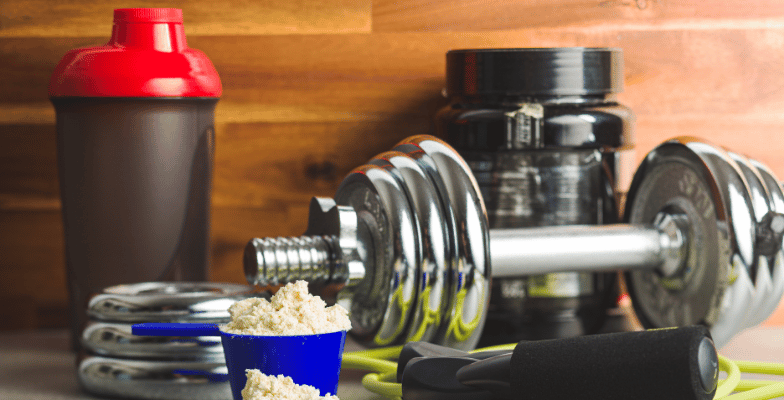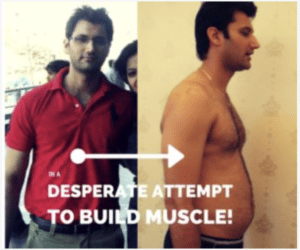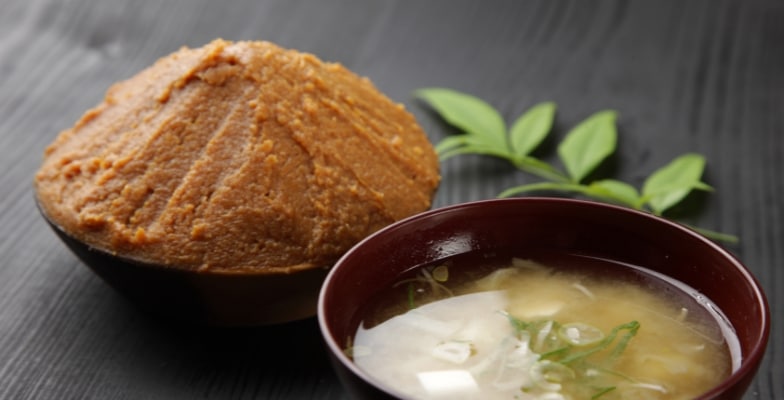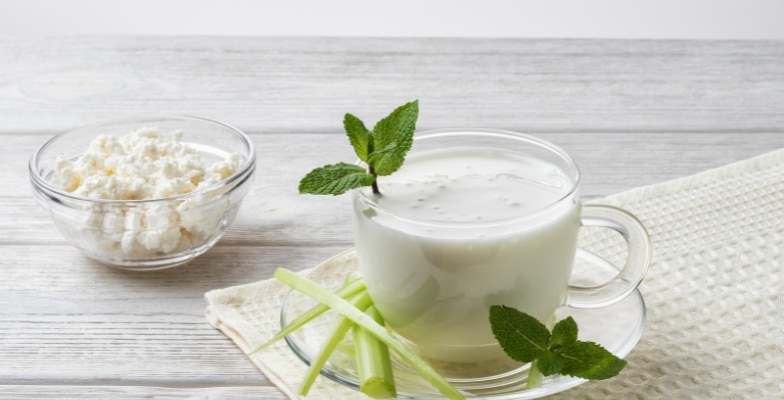Does Protein Timing Matter For Muscle Building?
- Introduction
- What Is Protein Timing?
- Are Pre & Post Shakes/Meals Important For Muscle Building?
- Conclusion & My Recommendation

Introduction
Almost a decade back, I carried foods such as protein powder, protein bars, almonds, etc., whenever I left my house. This was to ensure I never missed eating a protein-rich meal every 2-3 hours!
I was super dedicated to this way of eating, as I was convinced it was the only way to achieve a perfectly lean and muscular body. I habituated myself to eating 5-7 small, protein-rich meals a day.
I planned, prepared, and cooked all my meals in advance, and I even set the alarm for every three hours to remind myself to eat. I followed through with this pattern of eating for a long time (almost a decade), but eventually, it started to affect me.
It started to affect my work, as the moment I finished a meal, I started thinking about the next one. Worst of all, I hardly saw any results!

Sure, there are other variables when it comes to building a lean and muscular physique, and these variables are not limited to nutrient timing.
Still, something inside me was screaming that there is a better approach. While my friends and family appreciated my dedication, somewhere deep inside, I worried about how I would be able to live like this long-term!
If you have read my story, you know I ditched conventional wisdom sometime between 2010 and 2011 and started researching better and smarter ways of building my physique.
Related Article: My Story
And one of the things I learned was meal frequency matters less when it comes to muscle building. Armed with this fact, I limited my feeding window to 8 hours a day and ate only two main meals and 1-2 snacks a day.
You may have heard of intermittent fasting. I discuss it in a separate article.
Related Article: Intermittent Fasting: The Definitive Guide
For now, let’s limit our discussion of intermittent fasting to protein timings, and with the help of a few high-quality studies, truly understand whether this nutritional strategy is vital to accelerate muscle growth and strength or not!
What Is Protein Timing?
Protein timing is a dietary strategy of consuming protein at specific times to maximize results. The specific times could be before, during, and after your workouts.
It could be right before bed, the moment you wake up, or in some cases, even in the middle of the night when you wake up to drink your protein shake (yeah, I have done this, too…a few times).
When the concept of protein timings comes up, it is usually associated with building muscles by accelerating muscular repair and recovery.
Are Pre & Post Shakes/Meals Important For Muscle Building?
Consuming your protein shake immediately post-workout is a controversial topic, and people have strong opinions about it.
For example, your gym trainer will most likely suggest a conventional method where you ingest a fast-acting protein, probably whey protein, 30-45 minutes before your workout, and most importantly, another serving immediately (within one hour) post-workout to maximize muscle-building or else (they’ll say) you’ll lose your gains!
You may have heard the term’ anabolic window of opportunity or the ‘golden window of opportunity,‘ which refers to the claim that there is a limited timeframe, usually around 60 minutes, within which a trainee should ingest fast-acting proteins and simple carbs to enhance and optimize training-related muscular adaptations.
This ‘window of opportunity’ is often considered the most critical part of nutrient timing, especially for trainees whose main goal is muscle hypertrophy.
The experts who supported this nutritional strategy provided the following logic.
-Working out and exercising breaks down muscle fibers
-Exercising also results in the depletion of glycogen and amino acid reserves
Therefore, a high-quality protein and simple carbohydrates in a given ratio, usually 1:2, is essential to prevent further muscle breakdown and may even super-compensate for the effects of exercise and facilitate muscle tissue regeneration and restoration of glycogen stores.
Study 1)
In 2013, top researchers in the field of bodybuilding nutrition, Alan Aragon and Brad Schoenfeld, published a study in the ‘International Journal of Sports Nutrition’ titled Nutrient Timing Revisited: Is There a Post-Exercise Anabolic Window? 1https://jissn.biomedcentral.com/articles/10.1186/1550-2783-10-5
The purpose of this paper was to review existing scientific literature that supports the claim of an anabolic window and provides recommendations on how one can maximize muscle growth through nutrient timings.
Key Findings
-Evidence that supports the ‘anabolic window of opportunity’ is far from definitive.
-Only in the case of fasted training (usually an overnight fast) would it make sense to have an immediate post-workout shake consisting of simple carbohydrates and protein.
-Since not many people engage in fasted training, the timing of a post-workout meal/shake will vary, depending on what a person had before his workout.
-If a trainee has a pre-workout meal 1-2 hours before their workout, this meal can easily act as both a pre-and post-workout meal.
-A study stated that taking only 6g of essential amino acids before exercise elevated blood and muscle amino acid levels by roughly 130%. These levels remained elevated up to two hours post-workout. 2https://www.ncbi.nlm.nih.gov/pubmed/11440894?dopt=Abstract
-Another study showed that ingesting 20g of whey protein just before exercise elevated muscular uptake of amino acids to 4.4 times pre-workout levels, and the levels did not return to baseline until three hours after training. 3https://www.ncbi.nlm.nih.gov/pubmed/16896166?dopt=Abstract So overall, if a trainee consumes a pre-workout protein shake or has a protein-based meal, the meal also acts sufficiently as a post-workout meal.
-The anabolic effect of a meal lasts approximately 3-6 hours. 4https://www.ncbi.nlm.nih.gov/pubmed/15640518?dopt=Abstract This means if you eat your pre-workout meal more than 3 – 4 hours before your workout, the need for a post-workout meal becomes vital to maximize muscle growth.
Lastly, there was a lack of cohesive data on the importance of carbohydrate timing, suggesting that total carbohydrate intake is more important than the timing of pre- or post-workout meals/snacks.
Keep reading until the end…
I will provide a complete list of practical guidelines based on various lifestyle choices and describe how you can use nutrient timings, particularly protein timings, to maximize muscle growth and recovery.
Study 2)
In 2009, Hoffman et al. did a study on the effect of protein supplement timing on strength, power, and body composition changes in resistance-trained men. Thirty-three resistance-trained men were randomly assigned to one of three groups. 5https://www.ncbi.nlm.nih.gov/pubmed/19478342
The first group ingested a protein supplement in either the morning or evening. Another group was asked to drink protein shakes before and immediately after workouts. The third was a control group that did not use any protein supplements.
At the end of the ten weeks, the authors saw no significant differences among the groups. There was no change in body fat percentage nor any added strength, power, or hypertrophy gains.
Study 3)
In 2013, Brad Schoenfeld, Alan Aragon, and James Krieger conducted a meta-analysis of randomized controlled trials (the gold standard when it comes to the quality of studies). 6https://www.ncbi.nlm.nih.gov/pmc/articles/PMC3879660/
This is the first meta-analysis of the long-term effect (six weeks or more) of consuming protein around workouts and its impact on strength and hypertrophy adaptations. The sample size was large, with 478 subjects for strength outcomes and 525 subjects for hypertrophy outcomes.
Key Outcomes Of This Meta-Analysis
-Evidence does not support the claim that pre-workout or post-workout consumption of protein enhances strength or muscle building.
-The anabolic window of opportunity is much wider, 4-6 hours post-workout instead of less than 1 hour as earlier believed (This was also concluded in Study 1).
-The overall protein intake in a day matters more than when it is consumed.
Another study concluded that intermittent fasting, which requires a person to limit their feeding window, does not affect muscle growth. 7https://academic.oup.com/ajcn/article/90/5/1244/4598111
Conclusion & My Recommendation
Protein is awesome! It has essential functions in the human body. When you are active, protein requirements increase. If your goal is to lose fat and build muscle mass, you must consume 1.2-2g of protein/ kg of body weight every day.
Before worrying about protein timings, try to build dietary habits that ensure your total protein intake is within the above range. If you are into strength training, CrossFit, or any other high-intensity workouts, aim for the higher end of the range, i.e., 1.6-2g of protein per kg of body weight.
Only when you can consistently consume the optimal amounts of protein discussed above should you worry about protein timings.
Practical Guidelines For Protein Timing To Maximize Muscle Growth And Recovery
Rocky

Let’s help Rocky get his protein timing right based on his preference, tolerance, and lifestyle choices. Rocky weighs 70kg, and his goal is to maximize muscle strength and hypertrophy.
Let’s put Rocky in three lifestyle scenarios and understand the best strategy in each case with regard to protein timings.
Lifestyle Scenario 1) Fasted Workout In The Morning
7 AM- Morning fasted workout
8 AM- Immediately post-workout, consume 24g of protein, ideally a fast-acting whey protein
Note: If Rocky does not take supplements, he should have a high-protein breakfast soon after his workout.
9 AM- Breakfast. If Rocky did not have a supplement immediately post-workout, he must eat breakfast as soon as possible to avoid muscle breakdown. For the rest of the day, Rocky can focus on eating around 1.6-2g of protein/kg of his body weight divided into a few meals.
Lifestyle Scenario 2) Afternoon Workout
10 AM- A high-protein breakfast
1 PM- A pre-workout snack comprising 30g of protein
3 PM- Workout
Now the question is, should Rocky consume his post-workout snack/meal immediately after his workout, or can he delay it?
Based on the above research, we know the anabolic effect of a meal lasts 3-6 hours. For a small meal/snack, the anabolic effect last 3-4 hours, and for larger meals (usually between 500-1,000 calories with protein intake close to 50-70g), the anabolic effect lasts 5-6 hours.
Rocky has a small meal at 1 pm, so he needs to consume a post-workout meal/snack immediately after his workout at around 4 pm. He prefers to have a post-workout whey protein supplement, which has roughly 24g of protein.
The recommended doses of pre- and post-workout protein are close to 0.4-0.5g/kg of lean body mass. Since Rocky weighs 70kg, if we assume his body fat percentage is 15%, his lean body mass is 59.5kg. Let’s round it off to 60kg.
Ideally, Rocky should consume 0.4*60 = 24 g in both his pre-workout and post-workout meals, and these meals should not be separated by more than four hours.
Lifestyle Scenario 3) Evening Workout
1 PM- Heavy lunch
5 PM- Workout
Now, Rocky has a meeting after his workout for about an hour, and his partner has made a sumptuous dinner for him. Rocky estimates it’ll be close to 9 pm when he has his meal.
What should he do in this case?
Even though Rocky has a heavy lunch, and the anabolic effect of this meal could last for up to 6 hours, the effect will only last until 7 pm. To maximize and support the hypertrophy gains, Rocky needs to have a post-workout protein shake at 7 pm. But he thinks this shake may spoil his appetite for dinner.
In that case, he should have a pre-workout shake comprising ~24g of protein 30-45 minutes before his workout, giving him ample time to have his dinner!
What do you think about this article? Have any questions? Let me know in the comments below.

Skill-Based Education.
Global Recognition.
Powerful Community Building
Secure a certificate of completion in as little as a day by graduating from one of our free courses.
Get Access to Our Free Courses. No Credit Card Required.

Fabulous Body Membership
Your All-Access Pass to A Fabulous Body & A Rewarding Career
25+ Certificate Courses & Programs, All Included
15 Day Free Trial, 100% Money-Back Guarantee
About Akash Sehrawat
Akash is a creator of 25+ programs and certificate courses in which more than 200,000 students have enrolled both on Udemy and Fabulous Body's native platform. Akash is also an author of three books that can be found on Amazon. His answers on Quora have gathered more than 12 million views in less than a year.











If there is a proper lunch meal at 1pm and workout is going to be at 3pm…then at what time will be the post workout meal??? And what should it be???
And If somebody is having breakfast around 8am and workout is at 12 noon and its for 1 hr then if there any requirement of having post workout snack or just have lunch between 1-2 pm
Hi Neha, the anabolic effect of a big meal is 5-6 hours. Which means if you have your lunch at 1pm then you are good until about 6-7pm. So its best to have a post workout shake or a meal before 7pm. It can be a protein shake or any high protein meal.
Again, the effect of a small meal is 3-4 hours and a big meal is 5-6 hours. You can do the math. Breakfast is at 8am. And its a proper breakfast, then you are good till about 1 or 2pm. Its ok to have lunch after your workout. Just ensure its high quality protein.